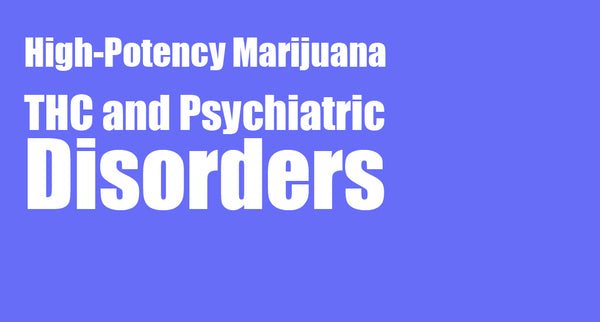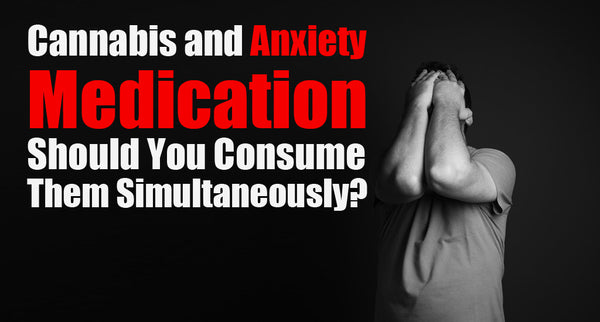
Will Germany Join The Sesh? - Germany’s Journey To Legalization
A large majority of countries in the European Union have not legalized cannabis. Some like Croatia and Austria have updated penal codes to decriminalize small possessions of marijuana. Others like France hold cannabis consumption and possession at any amount to be illegal and prosecutable.
Germany, however, is a peculiar case, what with its proportional multi-party governmental system – causing highly varied judicial protocol across the states. In this notorious but beautiful nation, cannabis smokers in Germany are rarely hard to find. Whether you see a not so low-key hand off at a playground, participate in a sesh away from the crowd at Oktoberfest, or happen to be a resident with medical marijuana card and can purchase your weed at a local Apotheke (pharmacy), no doubt you can find someone somewhere smoking, selling, or in the know.
Related article: Cannabis in Germany – Laws, Use, and History
What Are The Cannabis Laws In Germany?
The legal status of cannabis, specifically THC, in Germany is currently in a state of flux. While medical cannabis has been legal since 2017, recreational use of the drug remains illegal. However, different states vary in the severity of punishment, and some states even show flexibility concerning the possession of small quantities. The history of Germany's ban on weed dates back to the early 20th century when the country joined the International Opium Convention in 1912. The convention banned the production and distribution of opium and other drugs, including cannabis. Germany later passed its first official drug laws in 1929, which classified cannabis as a narcotic and made it illegal to possess or distribute.
German states are generally more lenient in the West and more strict in the East. For example, Berlin has decriminalized possession of up to 15 grams of cannabis, and sparking a joint in front of the police is a common occurrence these days, while the eastern state of Saxony has some of the strictest drug laws in the country. The reasons for this discrepancy are unclear, but it may be related to the fact that the western states were traditionally more liberal and open-minded, while the eastern states were more conservative — dating back to the times of the Berlin Wall.
German Cannabis Culture Lives On
Although cannabis is illegal in Germany, there is still a vibrant cannabis culture that has developed over the years across states. Many people in Germany are passionate about cannabis, and there are numerous cannabis-related events, such as the annual "Hanfparade'' in Berlin, which draws thousands of participants.
Even in the most strict German states, public 420 events are likely to take place. In more tolerable areas, there are also cannabis clubs and social groups that provide a space for like-minded individuals to gather and discuss cannabis-related topics, though smoking is of course illegal. Moreover, there are plenty of headshops in most cities, selling legal CBD, pipes, bongs, vapes, blunt wraps and more.
Furthermore, for what it’s worth, the black market for cannabis in Germany is thriving, with people continuing to use and sell cannabis in large quantities despite the risks. Many people in Germany continue to push for the legalization and reform of cannabis laws. Overall, the cannabis culture in Germany is a testament to the enduring appeal of cannabis and the desire for change in the country's drug laws.
Why Is Weed Still Illegal In Germany?
Conspiracy theories surrounding the cannabis legalization debate in Germany have circulated for years. Some believe that stereotypical pharmaceutical companies are behind the slow progress towards legalization, as they would stand to lose profits if cannabis were to become a more widely accepted alternative to traditional medications. Others suggest that politicians are reluctant to legalize cannabis because they fear the backlash from more conservative constituents.
Additionally, there have been allegations that Germany's intelligence agency, the BFV, has tried to sabotage efforts to legalize cannabis. In addition, the Nazis had a significant impact on drug policy in Germany. During the Third Reich, they outlawed drug use and possession, citing the need to create a "clean" and "healthy" society. After World War II, the occupying Allied powers kept many of the Nazi-era drug laws in place, including the ban on cannabis.
However, the nuts and bolts of the cannabis legalization issue as it presently stands are the political parties for and against legal marijuana. The electoral system used in Germany is a mixed-member proportional representation system, which combines elements of both proportional representation and single-member districts.
The judiciary system in Germany is independent of the executive branch, with its own set of courts responsible for administering justice. In terms of the number of members and parliament seats, the largest parties are the Christian Democratic Union (CDU) with its sister party, the Christian Social Union (CSU) and the Social Democratic Party of Germany (SDP). Other parties with significant influence in various regards include the Free Democratic Party (FDP), Alliance 90/The Greens, The Left, and the Alternative for Germany (AFD).
The Christian Democratic Union (CDU) Reign Has Ended
The Christian Democratic Union (CDU) is a conservative political party in Germany and has been in power for most of the post-war period. The party has consistently taken a hardline stance against the legalization of cannabis, citing concerns about drug addiction and public health. For example, in 2016, the CDU-led multi-party government passed the "Cannabis as Medicine" law, which allowed the use of medical cannabis but maintained a ban on recreational use. A begrudging step In the right direction, but the CDU's influence on this law made it to be one of the most restrictive medical cannabis programs in the world, limiting access to a few select conditions and tightly controlling distribution.
The CDU's negative influence on cannabis legalization in Germany has been felt in a number of instances, including blocked legislation proposed by other parties to legalize pot. For instance, in 2019, the Green Party introduced a bill to legalize cannabis in Germany, but it was rejected by the CDU-led government. Moreover, The CDU's stance against cannabis legalization has been championed by high-profile party members, such as former Health Minister Hermann Gröhe, who once stated that cannabis legalization would send a "fatal signal" to young people. On the other hand, the CDU's opposition to cannabis legalization has been heavily criticized by citizens and opposition, for being so far out of step with public opinion.
However, in the 2021 federal elections, the CDU resigned majority power to the Social Democratic Party (SDP), allowing for a breath of fresh air in the German cannabis legalization movement.
The Greens’ Movement Will Gain Momentum
The Greens have been the most vocal supporters of cannabis legalization in Germany, making this front a key component of their campaign. They argue that legalizing cannabis would reduce crime, free up police resources, and create tax revenue for the government — green all around. With a focus on progressive social policies, the Greens have been working to change the country's attitude towards marijuana, which has historically been conservative.
The party's positive views on cannabis are reflected in their support for legalization for both medical and recreational use. Moreover, Several prominent members of the Greens, such as Katrin Göring-Eckardt and Cem Özdemir, have been outspoken about the benefits of cannabis legalization and as such the party's manifesto for the 2021 federal election called for the decriminalization and legalization of recreational cannabis use.
As of 2023, the Greens have become one of the most powerful political parties in Germany, currently holding the second-largest number of seats in the Bundestag (federal parliament). The Greens are also part of the ruling coalition, having formed a multi-party government with the Social Democratic Party (SDP) and the Free Democratic Party (FDP). While the specifics of cannabis legalization in Germany are still being debated, the Greens' continued presence in government means that the issue will likely remain a priority for the foreseeable future.
(When) Will Germany Join The Sesh?
It is unclear when, or even if, cannabis will be legalized in Germany — certainly anytime soon. While there is a large and growing support for legalization among the public and even the ruling coalition, political opposition remains strong. It was expected that the German government would introduce a new bill to legalize cannabis for recreational use by the end of 2022. However, this has not happened. In fact, there are still many challenges that stand in the way. These include:
- Ensuring compliance with EU and international laws
- Addressing organizational and legislative issues
- Resolving taxation and marketing issues
- Opposition from other parties
- Opposition from federal states that are unwelcoming to cannabis legalization
Therefore, it is difficult to predict when exactly recreational cannabis will be legalized in Germany. However, now, the German government plans to legalize it by 2024. Even this is uncertain, as the SDP-led government is yet to hand in proposals to the European Commission. For now, stoners in Germany, and visitors looking to enhance their vacation experience, must wait for the slow wheel of bureaucracy to turn in the right direction.
We Support Our Stoners In Germany
Here in America, the cannabis culture may be one of the most enthusiastic of cannabis cultures in the world. We have had a long history with cannabis and cannabis legalization and we are now coming out of the woodwork, as 21 states have legalized weed. German does indeed tend to follow suit with US trends and political ideologies, however, their cannabis laws have not portrayed this so far.
Unfortunately, cannabis is federally illegal and only decriminalized for small possessions in a minority of areas. Hope is on the horizon, though, as a new, more liberal and tolerable group of political parties have won recent elections to hold a majority share of governmental representation. We believe the Greens and the Social Democratic Union will do what is necessary to align with their nation's public and legalize recreational cannabis consumption and possession.



